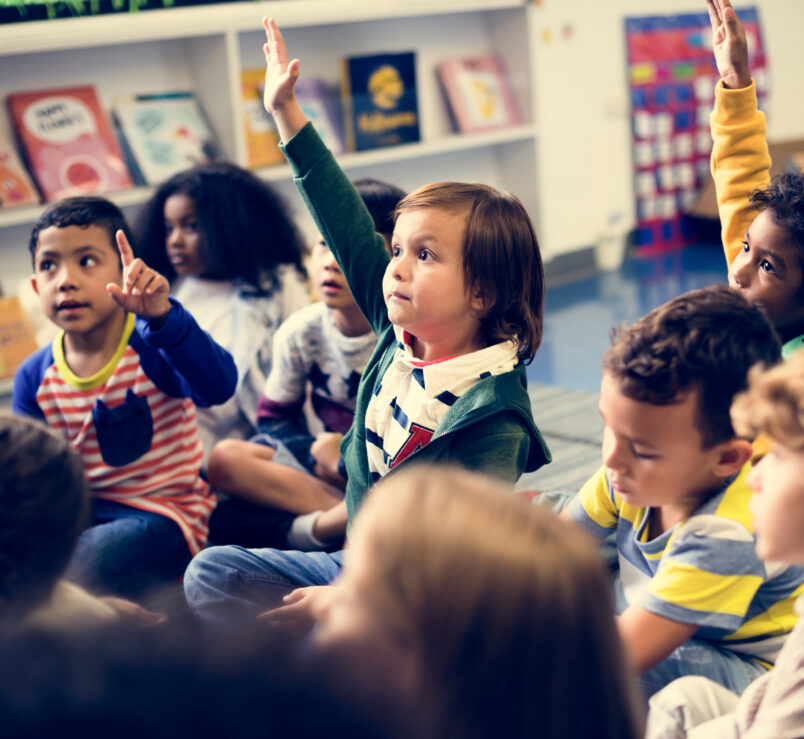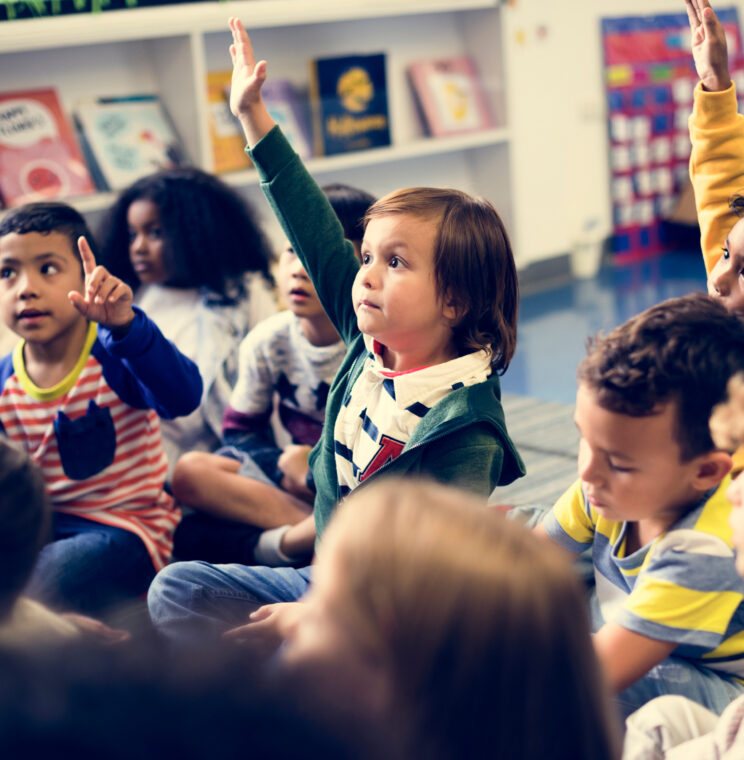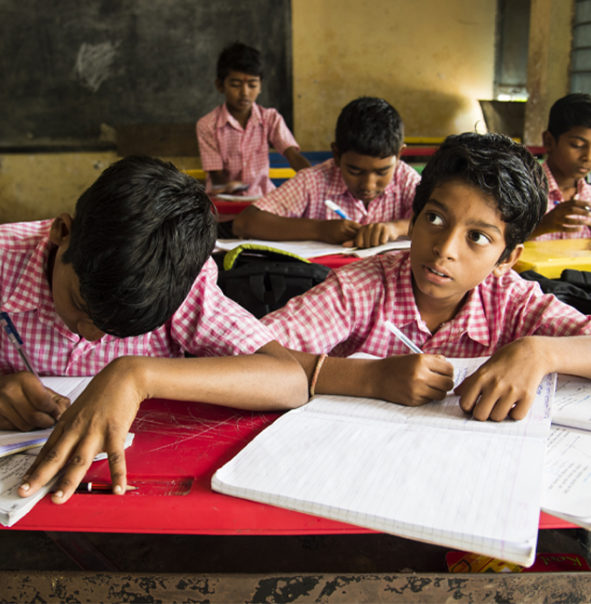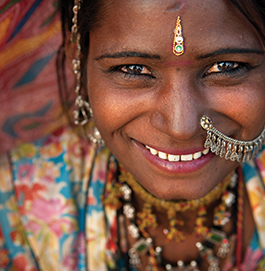Evaluating the Global Fund for Children’s impact through local voices
From December 2023 to January 2025, Ecorys conducted a Global Impact Study for the Global Fund for Children (GFC). This study explored GFC’s trust-based flexible funding model, assessing both its direct impact on community organisations around the world (referred to as GFC’s partners), and its indirect impact on the children, young people, and communities that these organisations work with.
A collaborative and contextual approach
Participatory approaches were central to the study’s design and implementation. Following a collaborative co-design phase with GFC, the study involved in-depth country-level work alongside global data collection across GFC’s regional networks in Latin America, Asia, Europe, and Africa. The study adopted a peer participatory action research (PPAR) approach, whereby 31 grant partners became Ecorys’ co-researchers after participating in week-long in-person PPAR training workshops facilitated by our team and delivered in the UK, India, Kenya and Guatemala. All data collection tools – involving stories of change approaches and a series of creative reflection activities – were co-designed in-country, ensuring they were adapted to the context and informed by knowledge of language as well as values, cultures etc. Co-researchers then undertook a total of 24 site visits, capturing stories of change through interviews and creative reflection activities with other grant partners, as well as community members – including children and young people. This was complemented by 53 virtual interviews with additional GFC partners, GFC staff, and GFC partner-led governance structure representatives.
In total, the study covered 49 partner organisations from 27 countries, spanning a wide range of organisational sizes (from nascent, small, medium, large, and extra-large), leadership types (including women-led, youth-led), and lengths of engagement with GFC (from 1 to 11 years). Funding amounts ranged across partners (depending on organisational need, length of funding, and other factors), with some partners having received a number of grants over time.
Altogether, the study drew on 243 interviews and 134 creative research activities. All of this data was analysed using the frameworks of Contribution Analysis (CA) and Most Significant Change (MSC). CA helped assess the contribution of GFC to partners, and then their contribution to communities, across the pathways of change identified in the Theory of Change. MSC provided a way to capture a nuanced picture of impact through gathering Stories of Change (SoC) and determining the most frequently mentioned and most important stories. A series of interactive triangulation and validation workshops—held with co-researchers and GFC stakeholders—provided opportunities to ‘make sense of’ the data, as well as to reinforce the robustness of the findings.
Capturing localised insights
PPAR was intentionally chosen as our research approach to move away from extractive evaluation methods, instead prioritising local understandings of complexity and ensuring that the process was grounded in context and experience.
- By involving local partners as co-researchers — and empowering them to bring in their research capabilities and contextual knowledge through training, co-design, data collection, and contribution to data triangulation—we significantly strengthened the quality and relevance of the evaluation. This approach rooted both the study design and findings in local realities.
- By encouraging children, young people and community members to describe change in their own words — not only through traditional ‘Stories of Change’ interviews but also through a co-developed toolkit of creative reflection activities—we captured impact in ways traditional evaluations often miss. These included movement-based exercises, video diaries, drawing, and testimonials, enabling inclusive participation by children, young people, and adults alike.
- By supporting a truly participatory approach, co-researchers across four countries reported meaningful outcomes that extended beyond the research itself — from forming new connections and friendships, to learning from peer organisations’ methods and strategies (e.g., on child, young people and community engagement), and even initiating new collaborations.
This study demonstrated that, even at scale, PPAR is both feasible and highly valuable for all involved, yielding rich, contextually grounded insights through a 38-person global research team (31 co-researchers and 7 Ecorys team members) and creating lasting benefits for those directly involved.
Sharing insights
- Final Report & Executive Summary: The final report and executive summary are currently undergoing final editorial review, with publication anticipated in April/May 2025. We will add links here as soon as they are available.
- UNDP MEL Sandbox Session – “Working with Complexity from the Ground Up” (March 18, 2025): Marta, alongside co-researcher Johnson Ochanda, presented at this global session hosted by UDP, with over 400 registrations. In this session, they shared how participatory techniques can help navigate complexity and shift power dynamics in global development evaluations. Check out the session recording and blog for some of the key takeaways from the session!
- UK Evaluation Society Conference – “Shift the Power! Global Impact, Local Knowledge” (May 21, 2025): Selina and Lilli will present at this major annual event in Glasgow, attended by over 400 evaluation professionals. Their session will focus on how to meaningfully centre local voices and context in global evaluations for a more grounded, nuanced and equitable understanding of change. They will be joined by Tyas Wardhani Pusposari (Global Fund for Children), Imran Manzoor (Breaking the Silence – co-researcher), and Ergel Hassan (YOH – co-researcher).
- Feedback+ Bozeman Virtual Summit (June 6, 2025): GFC has pre-recorded a dedicated session on the Global Impact Study, including a co-researcher from our study, for this virtual global summit. We’ll share the link once the session goes live.
We continue to look for opportunities to share learning from this study. If you’re aware of an event or platform where our insights could be valuable, please let us know—we’d love to hear from you! Contact: Lilli Loveday, Associate Director

24 June 2025
5 minute read



